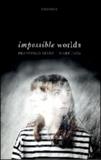Impossible worlds
Abstract
The latter half of the twentieth century witnessed an ‘intensional revolution’, a great collective effort to analyse notions which are absolutely fundamental to our understanding of the world and of ourselves—from meaning and information to knowledge, belief, causation, essence, supervenience, conditionality, as well as nomological, metaphysical, and logical necessity—in terms of a single concept. This was the concept of a possible world: a way things could have been. Possible worlds found applications in logic, metaphysics, semantics, game theory, information theory, artificial intelligence, and the philosophy of mind and cognition. However, possible worlds analyses have been facing numerous problems. This book traces them all back to hyperintensionality: the need for distinctions more fine-grained than the possible worlds apparatus can easily represent. It then introduces impossible worlds—ways things could not have been—as a general tool for modelling hyperintensional phenomena. The book discusses the metaphysics of impossible worlds and applies them to a range of central topics and open issues in logic, semantics, and philosophy: from the problem of logical omniscience in epistemic logic, to the semantics of non-classical logics, the modelling of imagination and mental simulation, the analysis of information and informative inference, truth in fiction, and counterpossible reasoning.
Citation
Berto , F & Jago , M 2019 , Impossible worlds . Oxford University Press , Oxford; New York . https://doi.org/10.1093/oso/9780198812791.001.0001
Type
Book
Collections
Items in the St Andrews Research Repository are protected by copyright, with all rights reserved, unless otherwise indicated.

